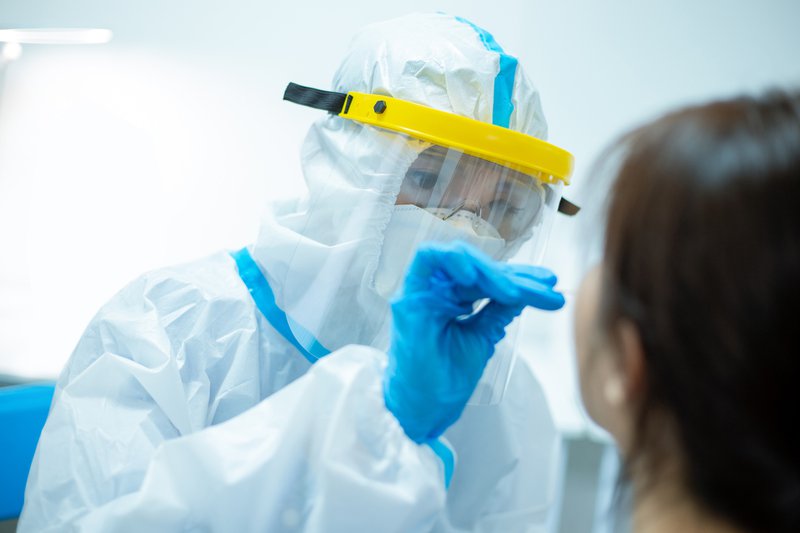Virus pushes Britain into record recession, NZealand mulls election delay
Updated | By AFP
The global coronavirus pandemic pushed Britain into its deepest-ever recession, data showed Wednesday, as New Zealand warned the re-emergence of COVID-19 could delay its upcoming election.

The British economy -- the world's seventh in size -- contracted by an unprecedented 20.4 percent in the period from April to June, far worse than any of its European neighbours and also well below the so-called Group of Seven richest countries in the world.
By comparison, France's economy contracted by 13.9 percent in the second quarter, Canada 12 percent, Germany 10.1 percent, the United States percent and Japan 7.6 percent.
The news that the virus has knocked down a fifth of its economy came as Britain continues to grapple with one of the highest death tolls in the world from the pandemic, which some observers blame on the government's early dithering over the imposition of strict confinement measures.
Nevertheless, the subsequent lockdown brought activity shuddering to a halt particularly in the key services, production and construction sectors.
"It is clear that the UK is in the largest recession on record," said the Office for National Statistics, which compiles the data.
Even if some experts are still predicting a "V-shaped" rebound, Britain's economic woes could not come at a worse time as it still has to reach a trade deal with the EU following its exit from the 27-country bloc.
Experts agree that the absence of any trade deal with the EU would only further exacerbate Britain's problems.
ALSO READ: Covid-19: KZN overtakes Western Cape
- Second wave looms -
On the other side of the world, New Zealand's prime minister Jacinda Ardern said the upcoming election in September could be postponed as the coronavirus seems to have re-entered the Pacific country.
With 1.5 million people under stay-at-home orders, and millions more at risk of a wider outbreak, Ardern said she was seeking advice on delaying the election currently scheduled for September 19.
Parliament was due to be dissolved on Wednesday to allow the election to take place, but the centre-left leader held off the move until Monday to monitor how the crisis evolves.
"At this stage, it's too early to make any decision but this means there is some flexibility if required," said Ardern, who is well ahead in opinion polls and expected to win a second term.
With the number of coronavirus cases worldwide surpassing 20 million and the number of deaths fast approaching 750,000, the World Health Organization has warned that a second wave is "almost inevitable".
So, with no vaccine still in sight, countries across the globe are starting to reintroduce restrictions as the number of infections tick higher.
In Belgium, which is battling one of the most serious coronavirus outbreaks in Europe, authorities made the wearing of face masks in public compulsory in the Brussels region from Wednesday.
Belgium has one of the highest per capita death rates from COVID-19 in the world and infections are again rising after earlier success in bringing the epidemic under control.
In Italy, too, regions have begun to order new quarantines for people returning from higher-risk European countries such as Spain and Greece, as they hope to stem new outbreaks of coronavirus.
- Marathon cancellations -
In the sporting world, the organisers of the Paris marathon said this year's race has been cancelled.
The race through the French capital, moved from its original date of April 5 to November 15, joins a long list of elite marathons across the world to be cancelled this year.
The marathons in New York, Boston, Chicago and Berlin have been scrapped and London announced that it would only hold a race for elite runners because organisers say it would be unsafe for 45,000 runners to compete.
- Vaccine guinea pig -
Philippine President Rodrigo Duterte will be a guinea pig for a controversial Russian coronavirus vaccine, his spokesman said on Wednesday, as the Southeast Asian nation emerged as a frontrunner for overseas clinical trials.
On Tuesday, Russia had claimed it had developed the world's first vaccine offering "sustainable immunity" against the coronavirus, despite mounting scepticism about its effectiveness.
President Vladimir Putin insisted the vaccine was safe and that one of his own daughters had received the inoculation, dubbed "Sputnik" after the pioneering 1950s Soviet satellite.
But western scientists have concerns about the speed of development of Russian vaccines, suggesting that researchers might be cutting corners.
The World Health Organization's spokesman in Geneva Tarik Jasarevic said it was in "close contact" with Russian health authorities but that it was too soon for any WHO stamp of approval.
"Pre-qualification of any vaccine includes the rigorous review and assessment of all the required safety and efficacy data," he said.
Indonesia is meanwhile launching a Phase 3 human trial of a vaccine candidate from China's Sinovac Biotech.
Phase 3 refers to trials involving large numbers of human test subjects and is usually the last step before regulatory approval.
The WHO says that 165 candidate vaccines are being worked on around the world, with six reaching Phase 3.
But emergencies director Michael Ryan warned that finding a vaccine would not automatically spell the end for COVID-19.
"We have perfectly effective polio and measles vaccines, and we still struggle to eradicate or eliminate those diseases. You've got to be able to deliver that vaccine to a population that want and demand to have that vaccine," he said.
Show's Stories
-
Hubby shares how much his wife loves their new car
Usually, it's the husband who is overly affectionate towards a new car –...
The Workzone with Alex Jay 2 hours ago -
SA comedian says wives need to stop buying colour socks
Socks are a classic "go-to" gift for many wives, but there are a few imp...
The Workzone with Alex Jay 2 hours ago